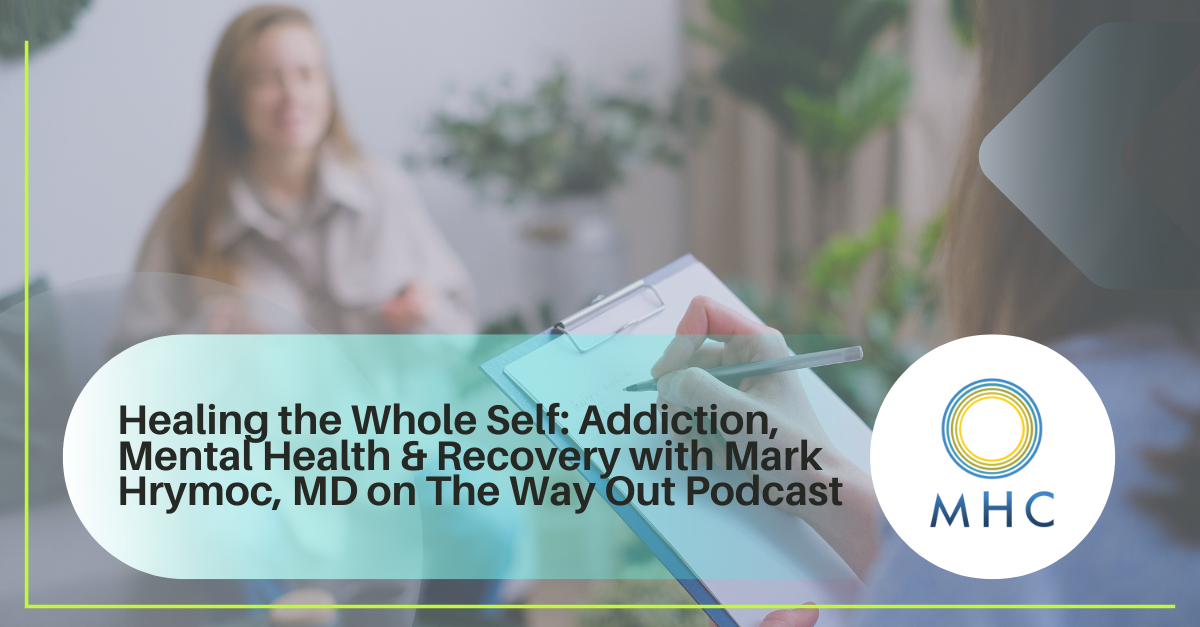Recovery is about more than just stopping substance use — it’s about restoring a person’s mind, body, relationships, and sense of self. In The Way Out Podcast episode “Healing the Whole Self: Addiction, Mental Health & Recovery,” host Jason R. sits down with Mental Health Center co-founder and addiction psychiatrist Mark Hrymoc, MD to explore what true healing really looks like.
Addiction and Mental Health Are Deeply Connected
As Dr. Hrymoc explains, addiction and mental health disorders rarely exist in isolation. Depression, anxiety, trauma, ADHD — when left untreated, they can fuel substance use. And in turn, addiction often intensifies these same mental health conditions.
That’s why treating just one issue isn’t enough. Recovery requires addressing both — together.
“Addiction and mental health feed off each other. Recovery means treating the whole person, not just the substance use,” says Dr. Hrymoc.
What Real Recovery Means
Recovery isn’t simply abstinence. It’s about being able to function, connect, and live fully without being limited by addiction.
According to Dr. Hrymoc, meaningful recovery includes:
-
Emotional stability and mental clarity
-
Healthy family and relationship dynamics
-
The ability to work, create, and contribute
-
Ongoing self-awareness and growth
Addiction is a lifelong condition — not a moral failure. Like any chronic illness, it requires long-term care, support, and management.
Innovative and Compassionate Treatment Approaches
The episode also explores modern and evidence-based treatments in addiction psychiatry, including:
🔹 Ketamine Therapy
Promising for individuals struggling with treatment-resistant depression, anxiety, or trauma. It can offer rapid relief when traditional medications fall short.
🔹 Suboxone and MAT (Medication-Assisted Treatment)
Suboxone helps stabilize brain chemistry and reduce cravings — but tapering off too quickly can be challenging. A slow, supportive approach makes a difference.
🔹 Psychopharmacology
Thoughtful use of medication to treat brain disorders — not to numb emotion, but to restore balance and support healing.
The Human Side of Healing
Beyond medical treatment, Dr. Hrymoc reflects on the personal side of recovery — family, humility, communication, and compassion. Shame keeps people stuck, while connection and honesty move them forward.
He emphasizes:
-
Families play a powerful role in both harm and healing
-
Recovery is not about perfection, but progress
-
Asking for help is an act of strength, not weakness
🎧 Listen to the full conversation:
Ready to Get Help or Learn More?
If you or someone you love is struggling with addiction, trauma, or mental health challenges, you don’t have to navigate it alone. The clinicians affiliated with Mental Health Center provide compassionate, evidence-based care tailored to each person’s needs.
👉 Schedule a confidential consultation at Mental Health Center


